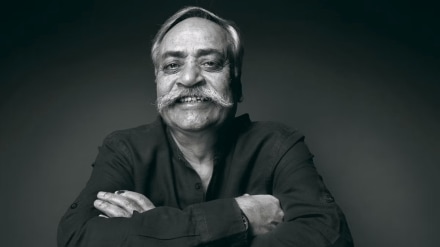Piyush Pandey, the creative visionary who reshaped Indian advertising with his storytelling and unmistakable voice, passed away on Thursday. He was 70. His funeral will be held on 25 October (Saturday) at 11 am at Shivaji Park Crematorium in Mumbai.
Who was Piyush Pandey?
Piyush Pandey spent over four decades at Ogilvy India, the agency that became synonymous with his name. His campaigns for Cadbury – Kuch Khaas hai, Fevicol, Asian Paints – Har khushi me rang laaye, and Hutch became cultural markers when it comes to Indian brands associating themselves with a language that authentically felt their own.
Pandey joined Ogilvy in 1982 after serving stints as a cricketer, a tea taster and a construction worker. At a point in time when the industry largely used English as its primary source of communication, Pandey brought in Hindu and other colloquial idioms and gave advertising a desi twist. “Piyush changed not just the language of Indian advertising,” a longtime colleague told media organisations. “He changed its grammar.”
Under his tenure, Ogilvy India became one of the world’s most awarded creative agencies, producing work that was both deeply local and globally recognised. In 2018, Pandey and his brother, filmmaker Prasoon Pandey, became the first Asians to receive the Lion of St. Mark, the Cannes Lions’ lifetime achievement honour. He also served as the first Asian jury president at Cannes in 2004 and received the CLIO Lifetime Achievement Award (2012) and the Padma Shri, becoming the first person from Indian advertising to earn the national honour.
His philosophy
His philosophy was rooted in emotional truth. “No audience is going to see your work and say, ‘How did they do it?’ They will say, ‘I love it,’” he often told young creatives. That belief shaped campaigns across categories and even politics, most notably the 2014 slogan “Ab ki baar, Modi sarkar,” which became a political refrain.
Pandey stepped down as the Executive Chairman and Creative Director of Ogilvy India in 2023 to take on an advisory role. He is survived by his family, his colleagues who became his extended family, and a body of work that continues to define Indian advertising’s heart and soul.
In one of his last interviews, Pandey said that the best ideas come “from the street, from life, from listening.” In that, he didn’t just give India memorable ads; he gave it a voice that still speaks.
